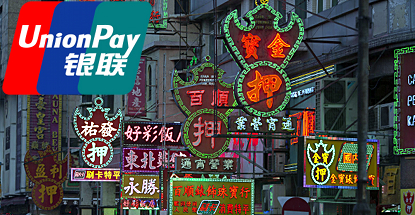 Macau’s gross domestic product fell more than one-quarter in Q2 as the special administrative region’s casino-based economy continues to struggle.
Macau’s gross domestic product fell more than one-quarter in Q2 as the special administrative region’s casino-based economy continues to struggle.
Figures released Monday by Macau’s government showed GDP falling 26.4% in the three months ending June 30, a worse result than Q1’s 24.5% decline. That puts Macau’s economic output at a low not seen since early 2011.
The numbers come one day before Macau releases its August casino gaming revenue figures, which analysts expect to be down around 38% from the same month last year. That would reverse a recent trend during the current 14-month revenue slide that appeared to indicate a slowing pace of monthly declines.
MACAU’S PAWN SHOPS ARE HERE TO HELP
One thing is for sure; you can’t blame Macau’s decline on its ever obliging pawn and jewelry shop owners. Just days after Macau arrested 17 individuals at five pawn shops for processing UnionPay card cash advances disguised as product purchases made on the mainland, Reuters reporters were able to easily find shop owners still willing to handle similar transactions.
Last Thursday, Reuters visited one pawn shop close to SJM Holdings’ iconic Lisboa casino. Inside, they found three Chinese men, on of whom received HKD 500k (US $64,500) in cash after presenting shop staff with a number of bank cards. The transactions, which took around 10 minutes to process, allowed the men to get around the $3,200 limit that Chinese citizens are allowed to legally take off the mainland at any one time.
Reuters visited a total of 13 shops, of which eight were willing to allow customers to withdraw as much as they had in their mainland accounts, while a ninth shop put a RMB 50k ($7,840) limit per card. At one shop, a female staffer told Reuters in Mandarin that she could process withdrawals of any amount, only to be contradicted by a male colleague, who muttered something to her in Cantonese while shaking his head.
Of the other shops that declined Reuters’ request, one jeweler said his shop had processed such transactions in the past, but “we cannot right now because of the police checks. Have to wait a while. Not sure how long. Maybe a month or so.”
Beijing’s crackdown on the flow of money to Macau has had the unintended effect of boosting casino-related crime. Last week, Macau authorities reported that the number of unlawful detention cases had more than doubled in the second quarter of 2015. Because most detentions occur in the casinos’ hotels, casino operators have begun to take out kidnapping insurance policies to limit their liability.
The biggest impact of Beijing’s crackdown on money movement has been on the VIP gambling sector and the junket operators who depend on this market. University of Macau criminologist Prof. Spencer Li told the South China Morning Post that the spike in unlawful detention cases was evidence that increasingly desperate junket operators were “currently lending money to people who they know probably won’t be able to pay it back.”






